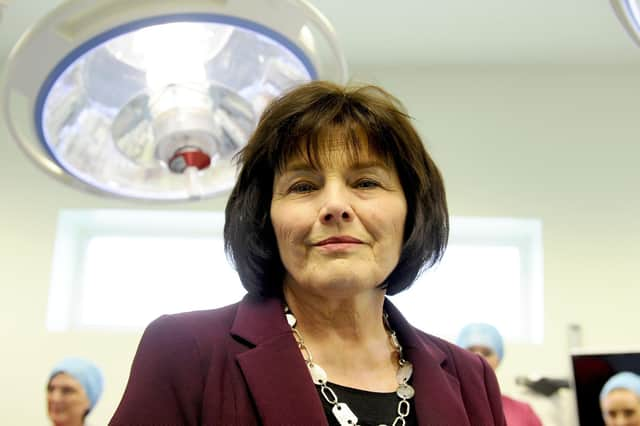City’s Eye Pavilion must be saved - your views


City’s Eye Pavilion must be saved
Health Secretary Jeane Freeman has declared that plans to fund a replacement for Edinburgh's Princess Alexandra Eye Pavilion will now not go ahead. Instead, the service is to be scattered (News, 1 January).
Such a notion was proposed by Lothian Health Board in the nineties then withdrawn after public outrage when it recognised the damage that would follow the destruction of a world class unit.
Advertisement
Hide AdAdvertisement
Hide AdThe first casualty is the essential sharing of clinical observation among staff and inevitably the second casualty is the patient.
A single hospital unit develops its unique sense of shared experience which in turn creates an atmosphere where patients can have trust in what is going to happen to them.
Then, instead of learning from each other, surgeons have to travel. Navigating a busy motorway between hospitals must be the most inefficient use of staff time and it is for sure, the very worst preparation for a complicated surgical list.
And complicated it would be, because serious surgical problems are referred from all over Fife, the Borders and West Lothian to this renowned teaching centre in Scotland's capital city.
Advertisement
Hide AdAdvertisement
Hide AdTo disseminate it in splinters back to West Lothian would be to destroy at a stroke, an ethos, a structure and a reputation built up and respected over decades.
This scheme, an attempt to save money quite clearly being spent elsewhere, would have one definite result - a poorer quality of care for all those terrified of blindness. Ms Freeman should think again.
Hector Bryson Chawla OBE FRCS, Morningside Drive, Edinburgh.
Ruth is wrong over euthanasia support
I read with concern Ruth Davidson’s recent comments in favour of euthanasia. One of the reasons is her grief at changes brought by dementia to those she loves. I have great sympathy for her situation but disagree with her conclusion.
Advertisement
Hide AdAdvertisement
Hide AdPeople who are disabled or dependent are of value and worth. When we acquiesce that some lives are not worth living, we are on a dangerous path indeed.
What happens if a person changes their mind? In the Netherlands in 2016, a woman with dementia was sedated and then held down by her family to receive the lethal injection. She had requested euthanasia at the onset of her dementia, but later when asked if she wanted to die, said ‘No’ three times. The action of the doctor was found to be lawful by a court in the Hague.
Ruth Davidson writes of agency or the right to choose the timing of our death. Respect for individual autonomy is important but cannot be absolute in a community. We should respect individuals' rights to make decisions about their own affairs. But we stray into unsafe waters if individual autonomy becomes me before you. The respect for not taking life is so critical to a society that, in this situation, it is necessary to curb individual freedom. Just as it is illegal to assist any person to commit suicide.
The terrible irony of her proposal is that euthanasia would reduce the autonomy of the most vulnerable. She wrote that the issue of ‘protection against coercion’ has been resolved in other jurisdictions. This is not the case. A review of involuntary euthanasia in Belgium by Raphael Cohen-Almagor was published in the Journal of Medical Ethics in 2015. It found that 1 in 60 deaths had occurred without the patient’s explicit request. It was more common in the elderly, those in a coma and those with dementia.
These are the very patients for whom we should ensure there is no move to assisted suicide and euthanasia in the UK.
Dr Gillian Wright, Our Duty of Care, St Enoch Square, Glasgow.